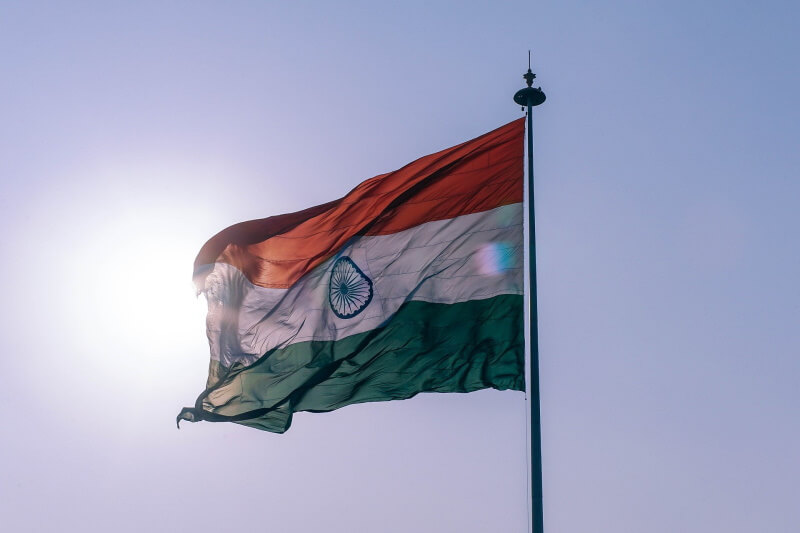On 5 January Arif Mohammed Khan, the governor of Kerala, signed an order officially raising the state’s goods and services tax (GST) on gambling from 18% to 28%.
The decision to implement the new 28% GST in Kerala represents a follow-through for amendments to the Central Goods and Services Tax Act 2017 and the Central Goods and Services Tax (Third Amendment) Rules 2023, which took place in August and September of 2023.
The GST applies to the amount paid to – or deposited with – an online gambling company. This covers casinos, horse racing and online gaming. From the perspective of Nishith Desai Associates, however, the GST should only be applicable to the platform fee.
India’s central government has communicated through the finance minister that the 28% rate will be reviewed after six months. In the meantime, Khanna says the process of enacting the GST is well underway.
“Various Indian states have implemented the GST rate, or are in the process of implementing the GST rate through such state laws, including Kerala,” Khanna explains.
As for whether 28% is simply too high, Khanna believes it could cause some discouragement. Overall, though, Khanna feels it will not hugely affect India’s thriving gambling market.
“The high GST rate may definitely disincentivise smaller operators and gaming startups,” she continues. “However, the existing market is already quite competitive.”
Could the GST be implemented in India retrospectively?
The implementation process for the new GST rate has been far from smooth. India’s tax authorities are seeking to enact the 28% rate retrospectively. They have been issuing show cause notices to real-money operators, alleging GST evasion.
According to media reports, notices were issued to 71 operators, totalling ₹1.12tn.
“GST is only for the indirect tax mechanism,” explains Sharma. “Earlier, the GST of 28% on games of chance and 18% on games of skill enabled it to have a differentiating regime even in the field of indirect taxation.
“The GST department has issued notices claiming that the tax is to be paid from 2017, as the notification was simply a clarification.”
Khanna believes this will have an enormous impact on operators.
“These show cause notices have been challenged before the Indian courts – High Courts of States and Supreme Court,” she explains. “The next date of hearing before the Supreme Court is 2 April 2024.”
The impact is set to be so great that it might overshadow the new GST rate imposition altogether, posits Sharma.
“Just the imposition of the enhanced percentage of GST is not the issue, as it will get offset by the GST via its inputs,” she explains. “However, the interpretation of imposing from a retrospective effect and also on the face value of bets, has put the market in jeopardy, making it prohibitive.”
From here, the legal challenges against the GST rate will only ramp up. The government has told India’s Supreme Court that it will transfer all pending GST challenges currently before the High Courts to the Supreme Court.
“Hence, the issue will come to a head this year before India’s apex court,” says Khanna. “The business impact of this decision will be significant.”
Why now?
State-run lottery is permitted in India as it is run under an independent central law – but private lotteries are prohibited. Rummy was officially recognised as a game of skill – a permitted type of game – in 1968. According to Sharma, though, this is not recognised in Kerala.
“Kerala has not recognised the court directions on rummy and horse racing being games of skill and centre government directions that igaming is the jurisdiction of the centre and not that of the state.”
Khanna explains that games of skill are excluded from gambling-related prohibitions in a majority of Indian states.
“Offering and playing games of skill have also been recognised as a constitutionally protected activity by Indian courts,” she adds.
But there hasn’t been a central mechanism to test whether a game should be classified as a game of skill. Just a few states have implemented laws that class certain games as games of skill.
An attempt to nationalise this system fell flat, says Khanna.
“With the innovation of several new skill gaming formats, there was a need to introduce a regulatory mechanism to test new games as games of skill quickly and effectively,” she explains. “Therefore, the IT Rules were amended to introduce a co-regulatory mechanism with self-regulatory gaming bodies (SRB), whereby such registered bodies would verify games as ‘permissible’.”
But SRBs “were not designated, and the rules were not operationalised”.
“It appears that the central IT ministry is evaluating direct control instead of the co-regulatory framework with SRBs.”
What lies ahead for India?
On top of watching the show cause notices debacle play out, as well as the GST rate take hold, a lot lies ahead for the Indian market in 2024.
For Khanna, one point of interest is how the aforementioned IT rules will be implemented. Of particular intrigue is how this will be regulated by the IT ministry.
But a number of important litigations have also piqued her interest. Last year, the High Courts of Tamil Nadu and Karnataka threw out bans on skill games that their respective state governments had ruled as unconstitutional.
“These have been challenged by the state governments before the Supreme Court,” says Khanna. “Hence, the Supreme Court may also determine the constitutional validity of banning games of skill. This will mould state policy towards such games.”
Sharma believes that India’s gaming market will continue to prove itself to the wider industry.
“India has the potential to emerge as a hub for developers of igaming and will continue to do so,” she says. “India is not just a ground for developers but increasing usage of smart games has also enhanced the access to online games.”
She points to how India’s government has committed to regulating the country’s gaming industry.
“India being a developing economy with low levels of earnings, the government has taken a moral stand to protect the gamers by ensuring information, education, no misleading advertisements, distinguishing game of skill and also the policy for intermediaries to ensure anti-money laundering and other related acts and concerns.”
Much of what could bring groundbreaking legislative change to India will develop with time. For now, the industry watches and waits.
Original article: https://igamingbusiness.com/legal-compliance/regulation/spotlight-on-india-analysing-keralas-28-goods-and-services-tax/


















